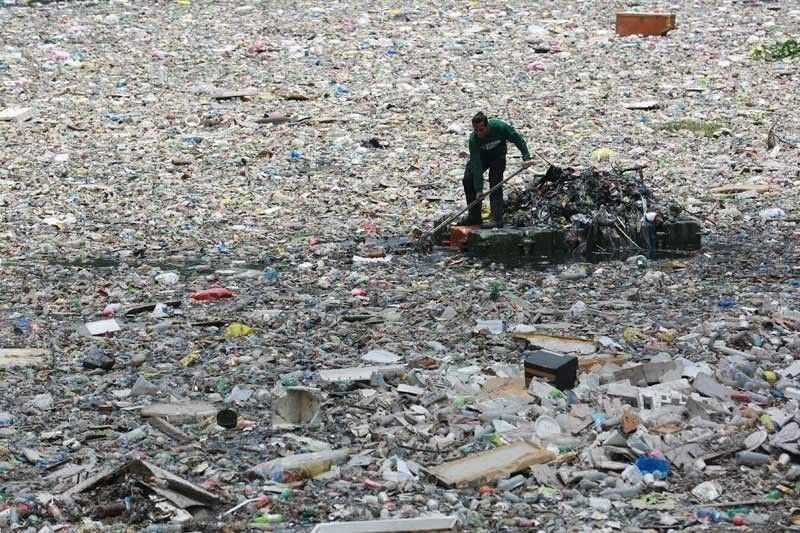Green groups criticize 'half-baked' single-use plastic ban in gov't offices

MANILA, Philippines — The resolution imposing a ban on “unnecessary” single-use plastics in all government offices is inadequate and may lead to more frequent use of plastic items, environmental groups said Tuesday.
The National Solid Waste Management Commission approved a resolution directing the Department of Environment and Natural Resources to come up with guidelines for national agencies, local government units and other government-controlled offices to prohibit certain single-use plastic items—a major source of pollution—in their workplaces.
These include plastic cups less than 0.2 millimeter in thickness, drinking straws, coffee stirrers, spoons, forks, knives
Environment groups, however, criticized the resolution saying the approach to prevent single-use and
Aileen Lucero, national coordinator of
“The policy is inadequate, full of loopholes and could probably result in
Plastic pollution is a problem in the Philippines. The country—along with China, Vietnam and Indonesia—
Rethink limited scope
Benny
“It was the decision of NSWMC to come up with a balanced judgment on the use of single-use plastics by taking into consideration that we can only
But Hernandez stressed that there are practical and cheaper alternatives for most single-use plastics being prohibited in other countries.
Sonia Mendoza, Mother Earth Foundation chairman, urged the government to rethink the policy’s limited scope.
“Considering the inadequacy of the NSWMC resolution, we urge the government to come up with a
A Social Weather Stations survey released in January showed that seven out of 10 Filipinos
The survey also showed that four out of 10 Filipinos believe companies should use or find alternative materials to plastic.
In November 2019, President Rodrigo Duterte floated that idea of banning the use of plastics. Prohibiting or regulating the use of plastics, however, would require legislative action.
In the absence of a legislation that regulates plastic waste,
- Latest
- Trending


































